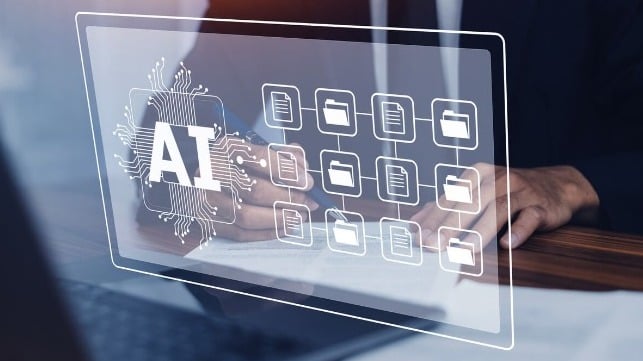Study: Maritime Industry is Trying Out AI, But is Still Skeptical

Maritime companies are enthusiastic about AI's potential for streamlining business and operational tasks, but are struggling to move beyond small-scale experiments, according to a new industry study by Marcura and Thetius.
The study found that 82 percent of maritime professionals are optimistic about AI's role in their sector, but nearly two-thirds worry that over-reliance on the technology could erode critical human skills and judgment. The overwhelming majority believe that AI tools still need human oversight to make sure that they perform as needed - and it's clear that AI will need human input for data collection, data labeling and prompts, in addition to human evaluation of the outputs.
The study, which surveyed more than 130 maritime professionals and conducted in-depth interviews, paints a picture of an industry caught between promise and reality. Though 81 percent of companies are running AI pilot projects, only 11 percent have established formal policies to guide how these technologies should be scaled across their operations.
The research identified clear consensus on AI's most promising applications. Nearly all respondents — 97 percent — see benefits in reducing manual workflow inefficiencies, while 87 percent believe AI can improve charter party contract analysis and help spot potential pitfalls.
However, more than two-thirds of respondents — 69 percent — expressed concerns that AI solutions might miss critical warning signs in contracts or voyage planning, potentially leading to costly business mistakes. 37 percent said they had personally witnessed AI failures in their organizations, and nearly a quarter of respondents said that AI vendors' claims often fail to match real-world results,
The specialized nature of maritime operations are a key factor in these implementation challenges. As anyone in maritime who has tried to use ChatGPT knows, generic AI tools often struggle with the sector's idiosyncratic terms and acronyms, its unique rules and its operational realities - all of which are a foreign language and culture that outsiders have to learn, including software outsiders.
"A general AI agent might interpret 'SF' as 'standard form,' but in shipping, it means 'stowage factor,'" explained Janani Yagnamurthy, vice president of analytics at Marcura. "Off-the-shelf solutions might automate basic processes, but they miss the nuanced context that maritime professionals rely on."
The skepticism about AI was highest for legal and compliance tasks; though the legal profession as a whole has adopted widespread use of AI for basic tasks, shipping respondents rated their compliance departments as least-suited for AI usage at present, citing concerns about data governance, regulatory liability and misinterpretation of legal nuances by AI.
Maritime-specific, purpose built AI agents may perform better than generic tools for these tasks. Marcura says that its AI-powered contract analysis tools recently helped a dry bulk operator avoid more than $120,000 in potential losses by identifying missing clauses in the draft of an agreement.
Despite successes in specific applications, most companies are still just testing the waters, and only 17 percent have established transparent processes for how AI systems inform decisionmaking in their companies.

that matters most
Get the latest maritime news delivered to your inbox daily.
"When change happens, it's very natural to fear losing control," Yagnamurthy said. "Skilled maritime professionals have spent decades honing their judgment in high-stakes roles. The best AI functions like a co-pilot, not a replacement."
Familiarity and fluency with AI will also need improvement: 38 percent reported that inadequate training is the biggest barrier to scaling up the use of the technology in their business. Poor implementation and poor education of the users can lead to poor outcomes, multiple respondents said. "People train their AI models but they don’t train their people. If the crew and the office do not understand the AI outputs, it could lead to misuse, which creates mistrust. We need to first train our people and our minds," one shipmanager told the research team.
